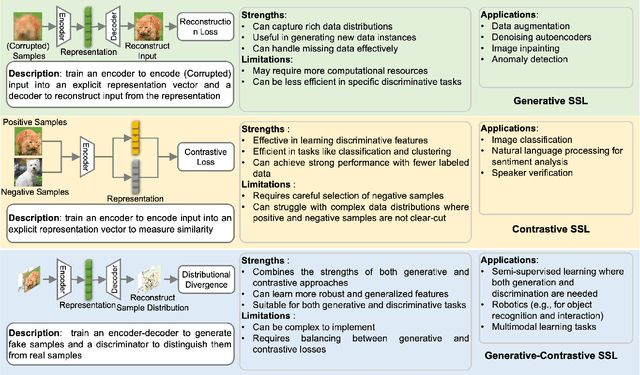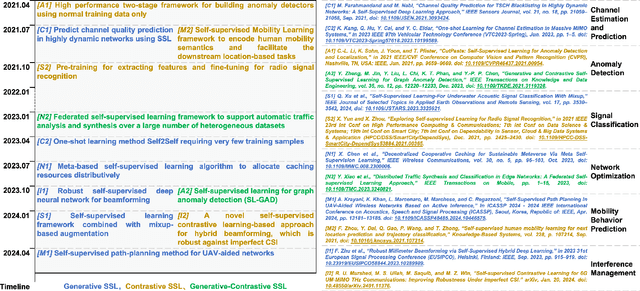Fanqin Zhou
Generative AI Enabled Matching for 6G Multiple Access
Oct 29, 2024Abstract:In wireless networks, applying deep learning models to solve matching problems between different entities has become a mainstream and effective approach. However, the complex network topology in 6G multiple access presents significant challenges for the real-time performance and stability of matching generation. Generative artificial intelligence (GenAI) has demonstrated strong capabilities in graph feature extraction, exploration, and generation, offering potential for graph-structured matching generation. In this paper, we propose a GenAI-enabled matching generation framework to support 6G multiple access. Specifically, we first summarize the classical matching theory, discuss common GenAI models and applications from the perspective of matching generation. Then, we propose a framework based on generative diffusion models (GDMs) that iteratively denoises toward reward maximization to generate a matching strategy that meets specific requirements. Experimental results show that, compared to decision-based AI approaches, our framework can generate more effective matching strategies based on given conditions and predefined rewards, helping to solve complex problems in 6G multiple access, such as task allocation.
Revolutionizing Wireless Networks with Self-Supervised Learning: A Pathway to Intelligent Communications
Jun 11, 2024



Abstract:With the rapid proliferation of mobile devices and data, next-generation wireless communication systems face stringent requirements for ultra-low latency, ultra-high reliability, and massive connectivity. Traditional AI-driven wireless network designs, while promising, often suffer from limitations such as dependency on labeled data and poor generalization. To address these challenges, we present an integration of self-supervised learning (SSL) into wireless networks. SSL leverages large volumes of unlabeled data to train models, enhancing scalability, adaptability, and generalization. This paper offers a comprehensive overview of SSL, categorizing its application scenarios in wireless network optimization and presenting a case study on its impact on semantic communication. Our findings highlight the potentials of SSL to significantly improve wireless network performance without extensive labeled data, paving the way for more intelligent and efficient communication systems.
 Add to Chrome
Add to Chrome Add to Firefox
Add to Firefox Add to Edge
Add to Edge